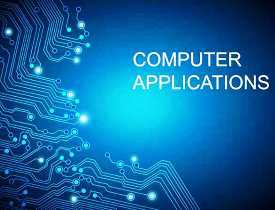Description
Course Name: Master Diploma in Computer Application(MDCA)
Course Id: MDCA/Q0001.
Education Qualification: 12th Pass.
Duration: 370 Hrs.
MDCA Course Syllabus
- Computer Organization and Architecture
- Microprocessors and Assembly Language
- Software Engineering
- Database Management Systems
- Artificial Intelligence and Application
- Web Technologies
How You will Get Diploma Certificate:
Step 1- Select your Course for Certification.
Step 2- Click on Enroll Now.
Step 3- Proceed to Enroll Now.
Step 4- Fill Your Billing Details and Proceed to Pay.
Step 5- You Will be Redirected to Payment Gateway, Pay Course and Exam Fee by Following Options.
Card(Debit/Credit), Wallet, Paytm, Net banking, UPI and Google pay.
Step 6- After Payment You will receive Study Material on your email id.
Step 7- After Completion of Course Study give Online Examination.
Step 8- After Online Examination you will get Diploma Certificate soft copy(Scan Copy) and Hard Copy(Original With Seal and Sign).
Step 9- After Certification you will receive Prospect Job Opportunities as per your Interest Area.
Online Examination Detail:
- Duration- 120 minutes.
- No. of Questions- 60. (Multiple Choice Questions).
- 10 Questions from each module, each carry 10 marks.
- Maximum Marks- 600, Passing Marks- 40%.
- There is no negative marking in this module.
| How Students will be Graded: | ||
| S.No. | Marks | Grade |
| 1 | 91-100 | O (Outstanding) |
| 2 | 81-90 | A (Excellent) |
| 3 | 71-80 | A (Very Good) |
| 4 | 61-70 | B (Good) |
| 5 | 51-60 | C (Average) |
| 6 | 41-50 | P (Pass) |
| 7 | 0-40 | F (Fail) |
Benefits of Certification:
- Government Authorized Assessment Agency Certification.
- Certificate Valid for Lifetime.
- Lifetime Verification of Certificate.
- Free Job Assistance as per your Interest Area.
Syllabus
Master Diploma In Computer Application (MDCA)
Computer Organization and Architecture
Boolean Algebra and Logic Gates Basic definition, Axiomatic Definition, Basic theorem and Properties of Boolean algebra, Minterms and Maxterms, Logic Operations, Digital logic gates, IC digital logic families, Simplification of Boolean functions: Different types map method, product of sum simplification, NAND or NOR implementation, Don’t care condition, Tabulation method, Adder, subtractor, Code Conversion, Universal Gate, Programming The Basic Computer, Introduction, Machine Language,Assembly Language, the Assembler, Program loops, Programming Arithmetic and logic operations, Subroutines, I-O Programming.Basic Computer Organization And Design, Instruction codes, Computer registers, Computer instructions, Timing and Control, Instruction cycle, Memory-Reference Instructions, Input-output and interrupt, Design of Basic computer, Design of Accumulator Unit.
Microprocessors and Assembly Language
Introduction to microprocessor, evolutions of microprocessor, microprocessor based systems, microprocessor instruction sets & various computer languages, microprocessor architecture, features of 8085, microprocessor pin diagram of 8085, microprocessor address bus & multiplexed address / data bus, memory & i/o interfacing, memory classifications flip-flop or latch as a storage element memory map and addresses memory instruction fetch, instruction set & programming techniques, programmable interface devices, advance microprocessor 8086.
Software Engineering
Introductory concepts: Introduction, definition, objectives, Life cycle – Requirements analysis and specification. Design and Analysis: Cohesion and coupling, Data flow oriented Design: Transform centered design, Transaction centered design. Analysis of specific systems like Inventory control, Reservation system, Object-oriented Design: Object modeling using UML, use case diagram, class diagram, interaction diagrams: activity diagram, unified development process, Implementing and Testing: Programming language characteristics, fundamentals, languages, classes, coding style efficiency. Testing: Objectives, black box and white box testing, various testing strategies, Art of debugging. Maintenance,Software quality: SEI CMM and ISO-9001. Software reliability and fault-tolerance, software project planning, monitoring, and control. Computer-aided software engineering (CASE), Component model of software development, Software reuse.
Database Management Systems
Introduction to Databases and Transactions, m, purpose of database system, view of data, relational databases, database architecture, transaction management,Data ModelsThe importance of data models, Basic building blocks, Business rules, The evolution of data models, Degrees of data abstraction, Database Design ,ER-Diagram and Unified Modeling Language, Relational Algebra and Calculus, Constraints, Views and SQL, Transaction management and Concurrency control, Transaction management: ACID properties, serializability and concurrency control, Lock based concurrency control (2PL, Deadlocks).
Artificial Intelligence and Application
Reinforcement Learning, Machine Learning for Big Data, Applications of Machine Learning, Multi Agent Systems, Deep Learning for Biomedical Data Analysis, Artificial Intelligence for Robotics, Cloud and Big Data Analytics, Quantum Artificial Intelligence, Natural Language Processing, Computer Vision, Use of artificial intelligence, Applications of AI, Current Methods Of Creating Ai.
Web Technologies
Web essentials: clients, servers, and communication. The internet-basic internet protocols the world wide web-http request message-response message-web clients web servers-case study, style sheets: css-introduction to cascading style sheets-features-core syntax-style sheets and html style rule cascading and inheritance-text properties-box model normal flow box layout-beyond the normal flow-other properties-case study, client- side programming: the javascript language-history and versions introduction javascript in perspective-syntax variables and data types-statements- operators- literals-functions-objects-arrays-built-in objects-javascript debuggers, host objects: browsers and the dom-introduction to the document object model dom history, representing web data: xml-documents and vocabularies-versions and declaration -namespaces javascript, web services: jax-rpc-concepts-writing a java web service-writing a java web service client- describing web services.

